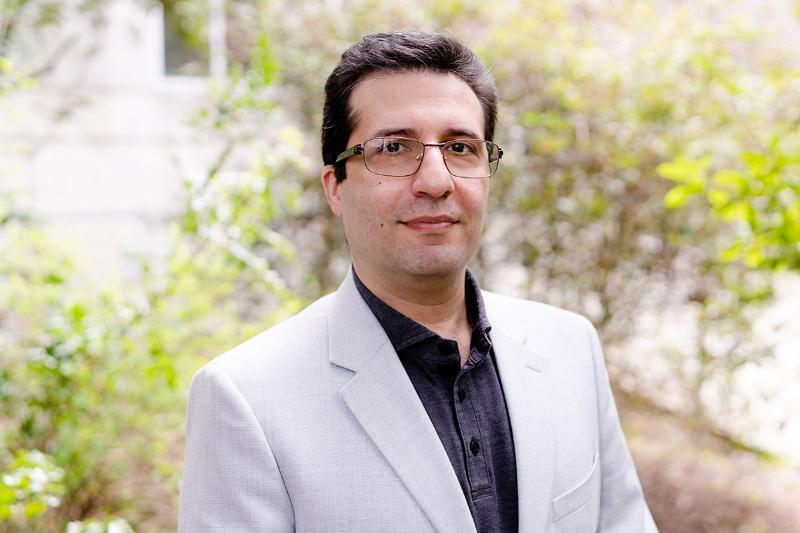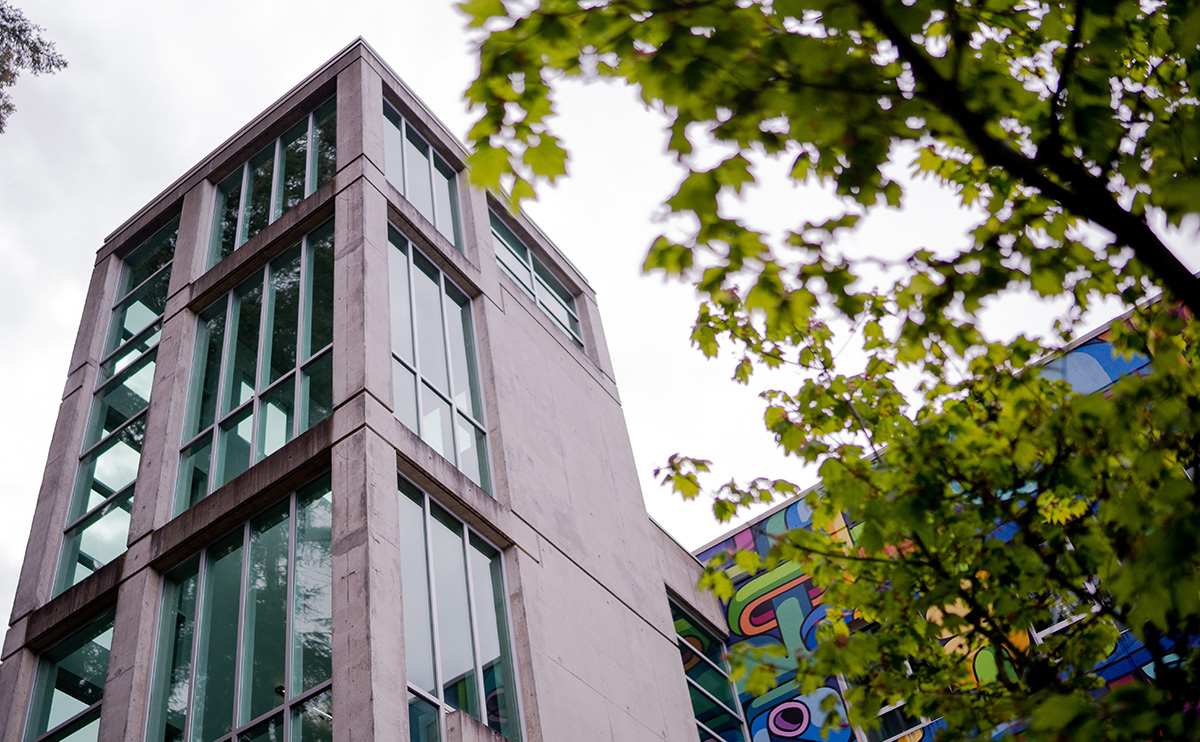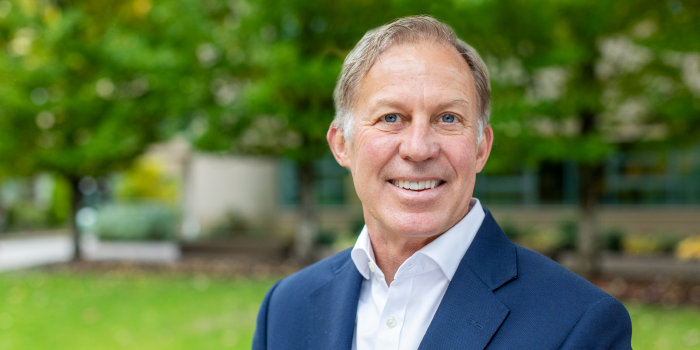This is a bimonthly newsletter featuring community updates from Capilano University President and Vice-Chancellor Paul Dangerfield.
May/June 2023
It’s one of my not-so-secret pleasures to wander over to CapU’s School of Performing Arts now and then to catch up on my social media while listening to talented music students practicing in the rooms all around me. It is indeed a joyful noise—a refreshing river of creative energy that always leaves me energized and inspired.
Participation in the arts improves civic engagement and mental health
It’s actually really old medicine: the value of the creative arts to the human experience has been understood since ancient times. And modern research offers empirical evidence that participation in the arts is related to increased civic engagement and improved mental health, and greater social tolerance and respect. In fact, a recent report from the World Health Organization identified “a major role for the arts in the prevention of ill health, promotion of health, and management and treatment of illness across the lifespan,” and declared that “the beneficial impact of the arts could be furthered through…promoting arts engagement at the individual, local and national levels, and supporting cross-sectoral collaboration.”
CapU's creative legacy
At CapU, we definitely got that memo, and we’ve been helping to enrich Canada’s creative landscape for 55 years now, with more than 5,000 graduates from the Faculty of Fine & Applied Arts since the early 1990s alone. And you will find them everywhere! When we survey our visual and performing arts graduates, 95 per cent of those who respond report they are employed—and almost all of them in an arts-related field. If you’ve ever attended Cirque de Soleil or Theatre Under the Stars, enjoyed a jazz concert at our Blue Shore Financial Centre for the Performing Arts, played a thrilling video game, or witnessed the benefits of music therapy for a beloved child or elder, then you’ve definitely been touched by CapU’s creative legacy.
Unleashing the power of imagination
The pursuit of creativity is central to our institutional vision and academic plan. Increasingly we are a University committed to unleashing the power of imagination to spark bold innovation in all our classrooms and communities. We’re now factoring imagination into our program review and development process, challenging faculty to find fresh approaches to delivering content—whether it’s accounting, biology, early child education or music (see comments below from the dean of Fine & Applied Arts, Ramin Shadmehr). Our new Bachelor of Science sets a high bar for how creativity and imagination can transform a traditional curriculum: in addition to classic scientific facts and theory, our program integrates work-integrated learning from the get-go, and incorporates lessons in leadership and truth and reconciliation.
Today we’re building imagination into every degree, and when the arts—or at least, creative mindsets—are blended into education, it creates a richer learning environment and produces graduates who are able to think differently about the problems in front of them, no matter their field. And in any community—not just here on campus—the arts help to strengthen bonds and boost engagement. I am pleased that CapU is part of a network of dedicated people and organizations working collaboratively to keep culture thriving in our home province, and we’ll be recognizing one of those people at the spring convocation ceremony: Paul Larocque, CEO of Vancouver’s Arts Umbrella, will receive an honorary degree for helping to make the arts more accessible to B.C. youth.
Seek out everyday wonder
As we round the corner on summer, I hope you will have many opportunities to seek out the “everyday wonder” that Dacher Keltner champions in his new book Awe: The New Science of Everyday Wonder and How it Can Transform Your Life. He makes a compelling case for daily exposure to all forms of the creative arts—a brain supplement, if you will, that helps strengthen curiosity, compassion and empathy. It’s an inspiring summer read…
Warmly,
Paul
Ramin Shadmehr, Dean, Faculty of Fine & Applied Arts

“Approaching arts education with an inclusive lens opens the world up to everybody.”
“At CapU, one of the areas we’re currently focusing on is Indigenizing and decolonizing our curriculum across the board, and that has had a very positive effect on the way we develop our arts education programs. Our music program is going through an overhaul and could be called ‘global music’, because we are expanding our range to embrace other cultures and traditions. We have a diverse faculty, including Kofi Gbolonyo, who covers African music and offers weekly drumming sessions to the community, and Mohamed Assani, an internationally-recognized sitar teacher. I really hope we will see more government support for the arts in the years ahead: I believe dance, music and theatre are powerful tools for reconciliation. We need to pick our priorities and pick them right! So, if you are really wanting to follow the truth and reconciliation, you must focus on these three tools and support them, otherwise words without action do not get us anywhere.”

